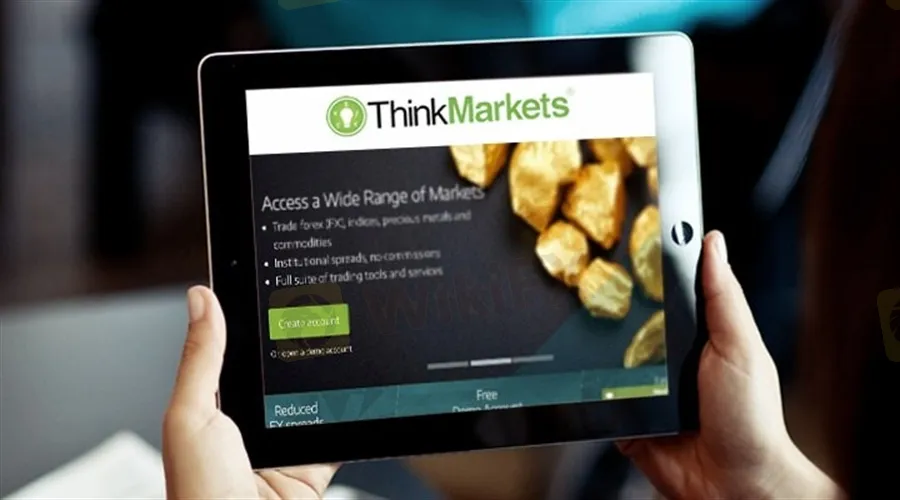简体中文
繁體中文
English
Pусский
日本語
ภาษาไทย
Tiếng Việt
Bahasa Indonesia
Español
हिन्दी
Filippiiniläinen
Français
Deutsch
Português
Türkçe
한국어
العربية
ThinkMarkets to Increase Margin on Share CFDs Due to Volatility
Abstract:ThinkMarkets announced on Tuesday that the broker is increasing the margin requirement of several contracts for differences (CFDs) instruments due to ‘unprecedented’ volatility in the global equities market, causing a liquidity crunch.

The new margin rules will be effective from Wednesday.
It urged traders to capitalize their accounts to avoid margin calls..
“Due to unprecedented volatility and low levels of liquidity in the global equity markets, ThinkMarkets is increasing the margin requirements on a selection of CFD equity products across our MT4, MT5 and ThinkTrader platforms,” the broker noted.
In addition, it highlighted that the margin changes for some of the products were significant and urged traders to make sure that their accounts are ‘capitalized well enough to avoid a margin call’.
The changes in the margin requirements will take into effect from February 9, 2100 hours
A Global Broker
Headquartered in Australia, ThinkMarkets is one of the reputed global brokerage brands and is regulated in multiple jurisdictions. Offerings of the platform include trading services with forex and contracts for differences (CFDs) of indices, stocks, commodities and cryptocurrencies.
The brokerage platforms list more than a thousand share CFDs of the companies listed in several global stock exchanges.
Meanwhile, the broker is focused on the expansion of its services. It entered the institutional space last year with the launch of a United Kingdom-regulated multi-asset liquidity platform.
Moreover, ThinkMarkets is aggressively promoting its brand and inked a big-ticket sponsorship deal with Liverpool FC, one of the most popular English football clubs. Furthermore, the broker acquired a Japanese forex company last year to strengthen its presence in the Asian markets. It even opened an office in Tokyo.

Disclaimer:
The views in this article only represent the author's personal views, and do not constitute investment advice on this platform. This platform does not guarantee the accuracy, completeness and timeliness of the information in the article, and will not be liable for any loss caused by the use of or reliance on the information in the article.
Read more

Blockchain Decentralization: Empowering a Trustless Future
In recent years, blockchain technology has rapidly evolved from a niche innovation behind Bitcoin into a transformative force across industries. At its core, blockchain decentralization refers to the distribution of authority and decision-making away from a central entity and into the hands of a distributed network of participants. This shift redefines how data is stored and verified and paves the way for trustless, transparent, and resilient systems that challenge traditional centralized models.

The president of @Liberland, @Vít Jedlička come on stage, dialogue on trading security.
The 2025 WikiEXPO Hong Kong Station is about to grandly open. the president of @Liberland, @Vít Jedlička come on stage, dialogue on trading security.

Countdown: 1 day.WikiEXPO2025's first stop, Hong Kong, is about to open.
⏰ Countdown: 1 day. WikiEXPO2025's first stop, Hong Kong, is just tomorrow. Focus on transaction security and explore new investment opportunities. ???? Get ready to start now. See you tomorrow.

JustForex vs JustMarkets: A Comprehensive Comparison in 2025
Selecting the right forex broker can make the difference between trading success and frustration for most investors, especially retail investors. As retail traders gain unprecedented access to global markets, the choice between platforms like JustForex and JustMarkets becomes increasingly significant. Both brokers offer some shining features within the forex and CFD trading space, but their approaches differ in some areas.
WikiFX Broker
Latest News
The Withdrawal Trap: How Scam Brokers Lure Victims into Paying More
FCA to Investors: Think Twice Before Trusting These Brokers
Trump\s tariffs: How could they affect the UK and your money
Trump gambles it all on global tariffs he\s wanted for decades
TradingView Brings Live Market Charts to Telegram Users with New Mini App
Trump tariffs: How will India navigate a world on the brink of a trade war?
Interactive Brokers Launches Forecast Contracts in Canada for Market Predictions
Authorities Alert: MAS Impersonation Scam Hits Singapore
IG Group Acquires Freetrade for £160M to Expand UK Investment Market
U.S. March ISM Manufacturing PMI Released
Currency Calculator







